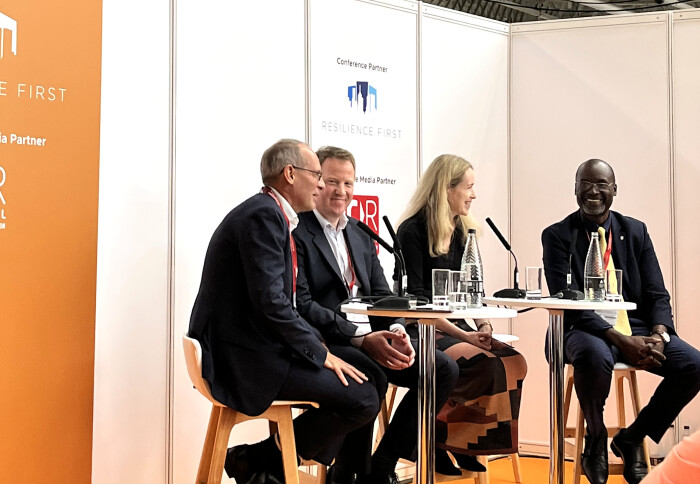Professor Ochieng speaks at the International Security Expo 2023
by Anna Friman

"Resilience is a community-wide endeavour and necessitates a triple-helix approach.”
Professor Washington Yotto Ochieng, the Institute for Security Science and Technology’s (ISST) Interim Director, delivered a panel session on the subject of security and resilience at the International Security Expo. The expo brought together thousands of security professionals from across the global security sector, providing them with valuable insights into the latest security and resilience innovations through discussions with renowned speakers.
Professor Ochieng spoke at the Risk and Resilience Conference, where the central theme revolved around navigating complex risks in an uncertain world. The panel delved into the definition of resilience and discussed its connection to societal services; considering factors such as the level of service continuity offered by a system and its recovery capabilities. They also discussed practical approaches to implementing societal resilience.
A central feature of resilience is community building and bridging gaps between different societal sectors. To achieve inclusive societal resilience, a triple-helix approach that unites government, academia, and industry is imperative. Collaboration with local communities, exemplified by initiatives like Imperial’s White City Campus Ecosystem and the new Centre for Active Resilience and Security (CARS), are effective means of nurturing collective resilience. Professor Ochieng also outlined the five threat vectors facing society where this approach is required: biological, physical, cyber, social, and environmental.
Additionally, the panel emphasized the importance of moving away from isolated thinking and fostering a culture of collaboration among these communities. This entails developing partnerships and sharing data to create more adaptable and transparent resilience plans. Establishing a means to convey the value of resilience, akin to ESG principles, will also be crucial. Furthermore, policymakers, end-users, and society at large must comprehend the nature of threats and the monetary worth of resilience, exceeding mere considerations of existential threats. Communication about societal resilience must shift to plausibility, embracing testing and failure through approaches like red teaming and scenario planning to lower the barriers to resilience.
In conclusion, the panel agreed that every crisis is an opportunity, and resilience is about thriving, not merely surviving.
Imperial’s Centre for Active Resilience and Security (CARS) is dedicated to laying the groundwork and establishing a knowledge base that will enable society to meet the challenges of insecurity that act across multiple levels of society head-on. In alignment with the College's vision, the Centre is the flagship initiative within the Resilient Societies strand of the Academic Strategy. CARS’ core mission revolves around promoting and supporting Active Resilience and Security. This entails a continuous process of adaptation, learning from adversity, and applying those lessons to become progressively more resilient and robust.
To learn more or to get involved, please contact Anna Friman at resiliencecentre@imperial.ac.uk
Article text (excluding photos or graphics) © Imperial College London.
Photos and graphics subject to third party copyright used with permission or © Imperial College London.
Reporter
Anna Friman
Institute for Security Science & Technology